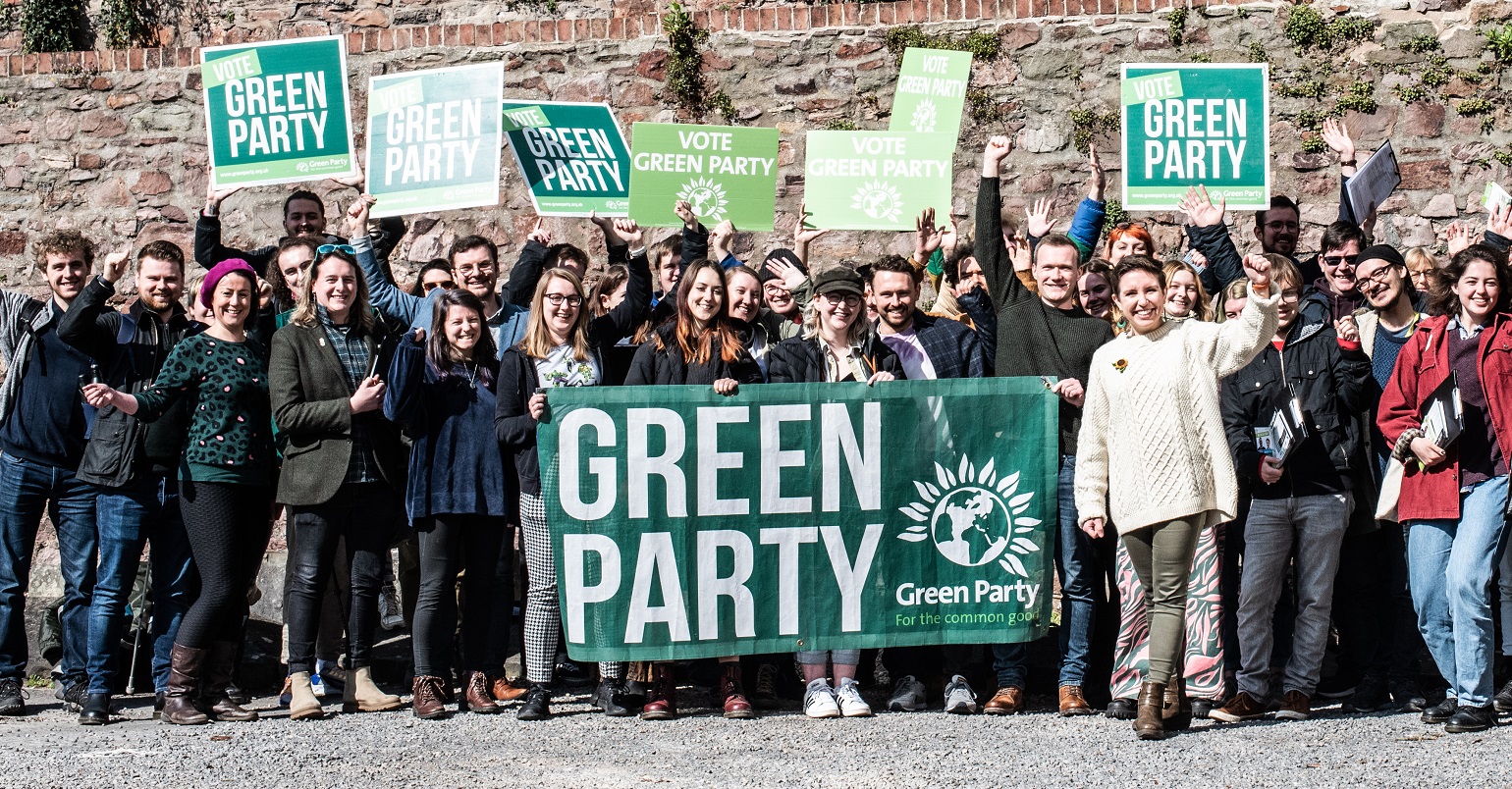From Mike Benfield to Jo Bird: 50 years of the Green Party

The Green Party has just had its fiftieth birthday, I am not sure if there was a cake but there was a party for the party. The three remaining founder members, from the original gang of four, attended the 50th anniversary event at the LSE, along with party leadership figures including former deputy-leader Amelia Womack and Caroline Lucas MP.
Much has changed, including the name. Originally the Party was known simply as ‘People’, often capitalised. In 1975 it became the Ecology Party, eventually the Green Party; the Scottish Green Party became independent and members in the north of Ireland are a part of the Irish Greens.
The membership has changed too. Of the three, Mike Benfield was widely reported as stating apocalyptically that it was too late to save the environment. Three of the four, including Mike, were ex-members of the Conservative Party, the late Tony Whittaker had been a Conservative Councillor. Lesley Whittaker had also been a Tory activist and her father was a Conservative Mayor of Coventry. A key intellectual influence on ‘People’ was Teddy Goldsmith, editor of the Ecologist magazine. His father had been a Conservative MP for Stowmarket in Suffolk and Teddy’s nephew Zac Goldsmith is currently a Tory member of the House of Lords.
In 2023 new members are more likely to have come from Labour and the wider left. With Labour moving in an increasingly authoritarian direction, thousands of ex-members have become Greens recently. In particular, a number of well respected Labour councillors have joined the party. Typical, perhaps, is Wirral councillor Jo Bird, who described herself in an article for the Green Party publication Green World:
“I come from a long tradition of Jewish eco-socialists, passionate about social and environmental justice and fighting all forms of racism. My grandads fought fascism in Europe as soldiers in the British Army. 90 years ago, my great-uncle helped organise hundreds of young workers on the Kinder Scout mass trespass leading to the right to roam and national parks for all to enjoy.”
She was expelled from the Labour Party for taking part in a meeting of Labour Against the Witchhunt, after a retrospective ban by the party. A popular local councillor, she is up for re-election this spring, you can find support her campaign and that of other green councillors on the Wirral here.
Of course the Green Party has moved in its history to some extent from right to left. The early ecologists were not exclusively by any means on the right, and Tories in the 1970s before Thatcher were less ideological than today. The sense that ecological problems threatened the survival of society propelled commitment from the likes of Mike Benfield and other early members. A commitment that should be applauded.
However, while ecological questions remain central to the party, green politics has a wider set of concerns, and this should be applauded too. During the 1970s the party attracted new members and was central to the movements against nuclear weapons and nuclear power in the early 1980s.
Despite a hostile media and an unforgiving electoral system, the Party has grown and gained strength. During this century it has vigorously campaigned against austerity and privatisation, attracting in turn members concerned to defend human rights and diversity. From its sister party, which is currently in government in Scotland, to Greens on the London Assembly, it has had real impact.
To grow further it must address several questions. One is how to democratise British politics; the experience of Jo Bird is indicative. Politics is distant for many of us, political parties are often top-down organisations and participation is seen, Starmer being just the most prominent example, as a threat to control. Could the Greens make a breakthrough in parliamentary politics and gain significant power? If they do so, perhaps on the back of disillusionment with a Labour government, how would the Greens avoid being corrupted by the British political system that rewards the voices that champion militarism, corporations and conformity?
While many of us are a long way politically from the original founders of the party, they were asking another essential question and should be thanked for doing so. How do we construct a politics of survival? The need to create an ecological politics that deals with accelerating threats such as climate change remains vital. The history of the party has seen ecological concerns linked to wider social concerns, which is progress. However, politics is not football, simply electing ‘good’ politicians to replace ‘bad’ politicians is unlikely to be enough. Creating a Britain which is democratic and works for the common good, while dealing with ecological realities that threaten our future, will demand fundamental structural change. Greens have much to celebrate but to guarantee a decent future, they need to put strategic debates at the centre of everything they do.
Derek Wall is a former Principal Speaker of the Green Party of the England and Wales. His most recent book is Climate Strike: The Practical Politics of the Climate Crisis published by Merlin Press.
PS. We hope you enjoyed this article. Bright Green has got big plans for the future to publish many more articles like this. You can help make that happen. Please donate to Bright Green now donate to Bright Green now.
Image credit: Matthew Philip Long – Creative Commons

Leave a Reply